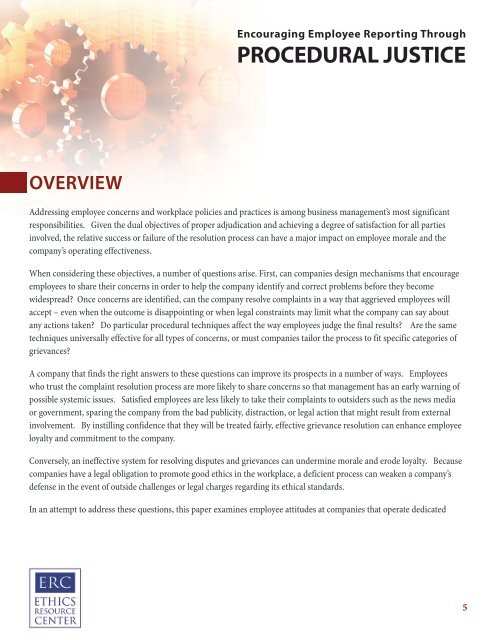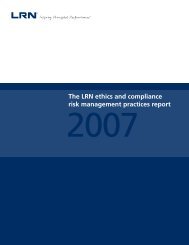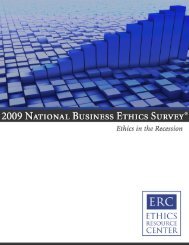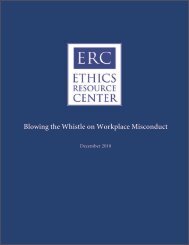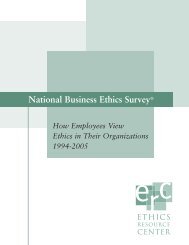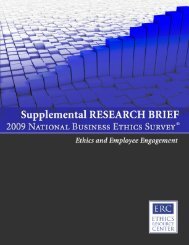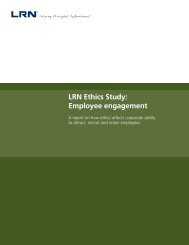PROCEDURAL JUSTICE - Ethics Resource Center
PROCEDURAL JUSTICE - Ethics Resource Center
PROCEDURAL JUSTICE - Ethics Resource Center
Create successful ePaper yourself
Turn your PDF publications into a flip-book with our unique Google optimized e-Paper software.
Encouraging Employee Reporting Through<br />
<strong>PROCEDURAL</strong> <strong>JUSTICE</strong><br />
OVERVIEW<br />
Addressing employee concerns and workplace policies and practices is among business management’s most significant<br />
responsibilities. Given the dual objectives of proper adjudication and achieving a degree of satisfaction for all parties<br />
involved, the relative success or failure of the resolution process can have a major impact on employee morale and the<br />
company’s operating effectiveness.<br />
When considering these objectives, a number of questions arise. First, can companies design mechanisms that encourage<br />
employees to share their concerns in order to help the company identify and correct problems before they become<br />
widespread Once concerns are identified, can the company resolve complaints in a way that aggrieved employees will<br />
accept – even when the outcome is disappointing or when legal constraints may limit what the company can say about<br />
any actions taken Do particular procedural techniques affect the way employees judge the final results Are the same<br />
techniques universally effective for all types of concerns, or must companies tailor the process to fit specific categories of<br />
grievances<br />
A company that finds the right answers to these questions can improve its prospects in a number of ways. Employees<br />
who trust the complaint resolution process are more likely to share concerns so that management has an early warning of<br />
possible systemic issues. Satisfied employees are less likely to take their complaints to outsiders such as the news media<br />
or government, sparing the company from the bad publicity, distraction, or legal action that might result from external<br />
involvement. By instilling confidence that they will be treated fairly, effective grievance resolution can enhance employee<br />
loyalty and commitment to the company.<br />
Conversely, an ineffective system for resolving disputes and grievances can undermine morale and erode loyalty. Because<br />
companies have a legal obligation to promote good ethics in the workplace, a deficient process can weaken a company’s<br />
defense in the event of outside challenges or legal charges regarding its ethical standards.<br />
In an attempt to address these questions, this paper examines employee attitudes at companies that operate dedicated<br />
5


